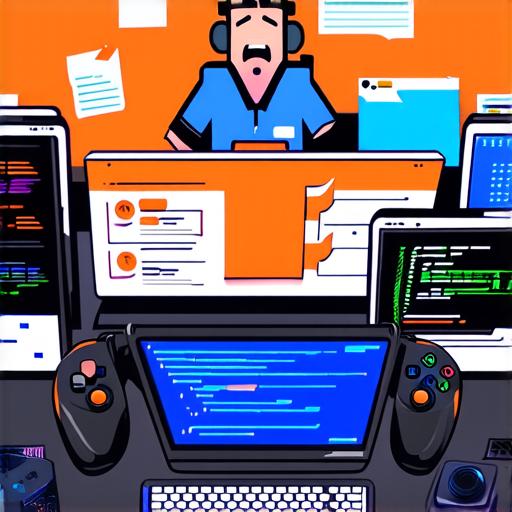I. Introduction
Before we dive into the details of starting your own game development company, let’s take a moment to define what we mean by “game development” and why it’s such an attractive industry for entrepreneurs.
What is Game Development?
Game development is the process of creating video games, from conceptualization to design, programming, testing, and distribution. It involves a wide range of skills and disciplines, including art, writing, music, and programming, among others.
Why Start a Game Development Company?
Starting a game development company can be an incredibly rewarding experience for entrepreneurs who have a passion for gaming and the ability to turn their vision into a reality. The global game market is growing rapidly, with projections of reaching $198 billion by 2024. This presents a unique opportunity for entrepreneurs to enter the industry and establish themselves as leaders in the field.
II. Market Research
Before launching any business venture, it’s essential to conduct thorough market research to understand your target audience, competitors, and industry trends. In the case of a game development company, this involves understanding player preferences, gaming platforms, and the current state of the gaming industry.
Understanding Player Preferences
The first step in conducting market research for a game development company is to understand player preferences. This includes factors such as age range, gender, preferred genres, and the devices they use to play games. You can gather this information through surveys, focus groups, or by analyzing existing data sources like social media or gaming websites.
Gaming Platforms
The next step is to understand the various gaming platforms available in the market, such as consoles, PCs, mobile devices, and virtual reality (VR) headsets. Each platform has its unique features and limitations, which can affect game development requirements, target audiences, and distribution channels. It’s essential to research each platform thoroughly and determine which one is the best fit for your game concept.
Industry Trends
Finally, it’s important to stay up-to-date with the latest industry trends in game development. This includes emerging technologies like artificial intelligence (AI), augmented reality (AR), and blockchain, as well as changes in player behavior and preferences. By understanding these trends, you can develop games that are not only entertaining but also innovative and relevant to the market.
III. Developing Your Game Concept
Once you’ve conducted thorough market research, it’s time to start developing your game concept. This involves brainstorming ideas, creating a game design document (GDD), and prototyping your game.
Brainstorming Ideas
The first step in developing your game concept is to brainstorm ideas. This can involve anything from scribbling down notes on paper to creating detailed sketches or 3D models of your game world.
Creating a Game Design Document (GDD)
Once you have a few solid game concepts, it’s time to create a GDD. This document outlines the details of your game concept, including the storyline, characters, levels, and game mechanics.
Prototyping Your Game
The final step in developing your game concept is to create a prototype.
IV. Funding and Team Building
With your game concept developed, it’s time to focus on securing funding and building your team. This involves understanding the different types of funding available, such as venture capital, angel investors, or crowdfunding, as well as hiring the right talent for your team.
V. Distribution and Marketing
Once you have a solid game concept, funding, and a talented team in place, it’s time to focus on distribution and marketing. This involves understanding the different platforms available for game distribution, such as app stores or gaming marketplaces, as well as developing a comprehensive marketing strategy to reach your target audience.
VI. Launching Your Game Development Company

With all the necessary steps in place, it’s time to launch your game development company and bring your vision to life! Remember to continuously iterate and improve upon your game concept based on player feedback and industry trends.
VII. Conclusion
In conclusion, starting a game development company requires thorough market research, a solid game concept, funding, the right team, effective distribution and marketing strategies, and continuous iteration based on player feedback and industry trends.





